Delegate Ma Thi Thuy proposed that tax authorities collect compulsory social insurance and that businesses that evade payment be criminally prosecuted as tax evasion.
At the National Assembly discussion session on the draft revised Law on Social Insurance on the morning of November 23, Deputy Delegate of the National Assembly of Tuyen Quang Province Ma Thi Thuy raised the current situation of evasion, delay, and arrears of social insurance (SI) payments that have been going on for a long time, concentrated in the production and business sector. Agencies have discussed and proposed solutions many times, but the effectiveness is still low, causing frustration and seriously affecting the rights of workers.
According to the female delegate, many countries stipulate that tax authorities always perform the task of collecting compulsory social insurance, then transfer it to the social insurance management agency. Acts of evasion, delay, and social insurance arrears are handled criminally according to tax management laws, so there is no situation of procrastination, evasion, or prolonged delay in payment.
"If we apply this experience of other countries, the efficiency of social insurance collection management will be improved, reducing unnecessary discussions and law amendments; and reducing the burden of inspection, examination, litigation, and handling of violations," said Ms. Thuy.
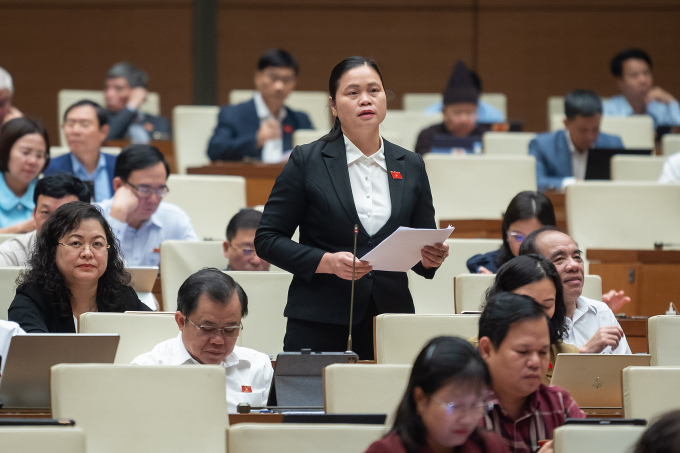
Delegate Ma Thi Thuy speaks on the morning of November 23. Photo: National Assembly Media
Director of the Department of Justice of Bac Giang Province, Do Thi Viet Ha, also requested the drafting committee to study and supplement the sanction of deducting social insurance debt from the bank account of the employer if they deliberately delay payment after being notified and urged by the competent authority for 3 months. The identity of units that owe social insurance must be made public in the mass media.
"It is necessary to have synchronous regulations to overcome difficulties in filing civil lawsuits and criminal prosecutions against employers who delay or evade social insurance payments," said Ms. Ha.
Specifically, when employers delay or evade mandatory social insurance payments and competent authorities have applied administrative sanctions, if they still do not pay or do not pay enough, the social insurance agency, trade union and employees have the right to file a lawsuit.
When an employer shows signs of committing the crime of evading social insurance payments as prescribed by the Penal Code, the social insurance agency, trade union organization, labor inspection and examination agencies, social insurance and employees all have the right to propose prosecution.
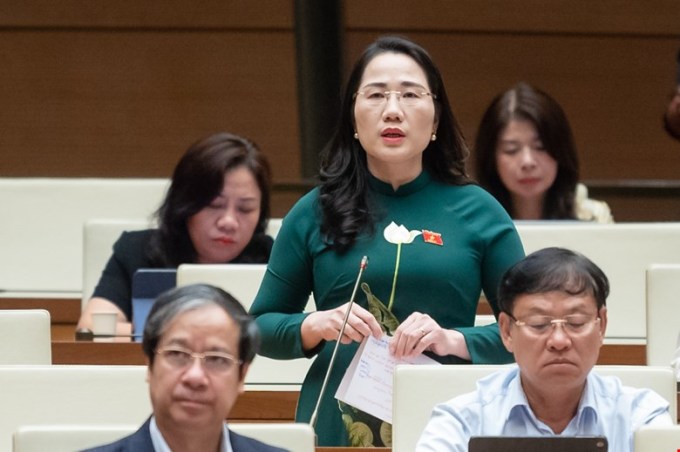
Delegate Nguyen Thi Thuy, Vice Chairwoman of the Judiciary Committee, speaks at the parliament. Photo: National Assembly Media
Delegate Nguyen Thi Thuy (Deputy Chairwoman of the Judicial Committee) cited statistics showing that the amount of money that units evaded or delayed in paying social insurance in the period of 2016-2022 was about 10,000 billion VND per year. Nationwide, there are 198,000 enterprises and units that are late in paying social insurance. The number of employees who were late in paying social insurance in 2022 has reached 2.6 million, of which 2,500 billion VND is unlikely to be recovered due to the dissolution, bankruptcy of enterprises or the enterprise owners fleeing abroad.
According to Ms. Thuy, Article 37 of the draft proposal to postpone the exit of business owners who are late in paying compulsory social insurance for 12 months is inconsistent with current regulations. The Penal Code stipulates that a person who is late in paying for 6 months or more, with some signs, constitutes the crime of evading social insurance payments. Therefore, she suggested that the drafting agency continue to study and explain this content to comply with the provisions of the Penal Code.
In addition, the right of the Trade Union to sue enterprises that evade social insurance payments is regulated by four laws: the Social Insurance Law, the Trade Union Law, the Civil Procedure Code and the Labor Code. These four laws are not consistent in terms of the rights and responsibilities of the Trade Union, as some laws assign the right to sue to the Trade Union, while others assign the right to sue to grassroots trade unions.
If the grassroots trade unions are assigned to sue for social insurance evasion, Ms. Thuy believes that there will be inevitable fear because grassroots trade union officials receive salaries from the enterprise. In addition, the trade union that initiates the lawsuit must have the authorization of each employee. This regulation will not be feasible for enterprises with thousands of employees. Therefore, Ms. Thuy proposed to amend the relevant content in the laws to ensure that sanctions for evasion are feasible in practice.
Handling the crime of evading social insurance, health insurance, and unemployment insurance payments has been stipulated in Article 216 of the 2015 Penal Code, but so far no case has been prosecuted. The Social Insurance Agency has consolidated the files of nearly 400 cases of social insurance evasion and transferred them to the police, but nearly half of the cases were determined by the investigating agency not to prosecute because there were not enough elements to constitute a crime, making it difficult to clarify the crime of evading payments. Some businesses brought their debt to pay as soon as the police got involved.
The draft revised Law on Social Insurance is expected to be considered and approved by the National Assembly at its mid-2024 session.
Source link









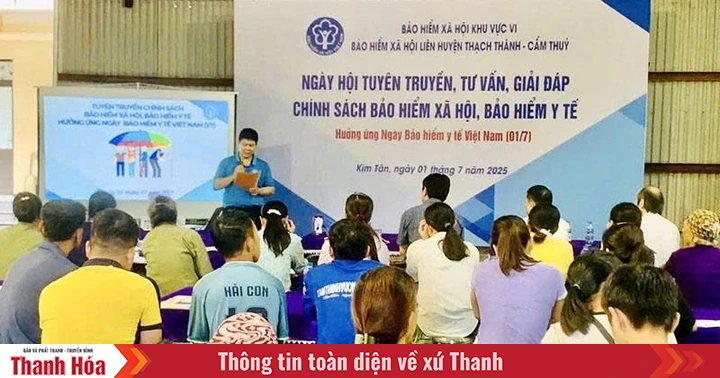

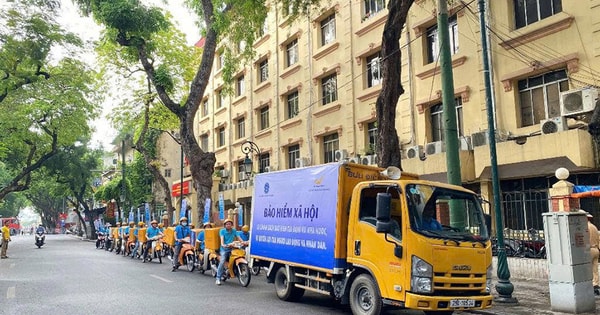



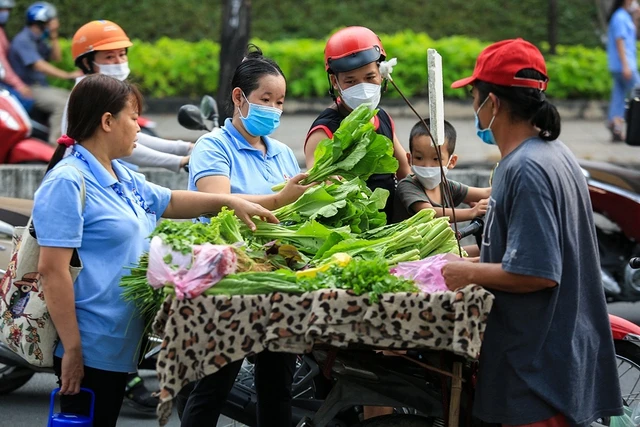























![[Photo] President Luong Cuong attends special political-artistic television show "Golden Opportunity"](https://vstatic.vietnam.vn/vietnam/resource/IMAGE/2025/8/22/44ca13c28fa7476796f9aa3618ff74c4)


































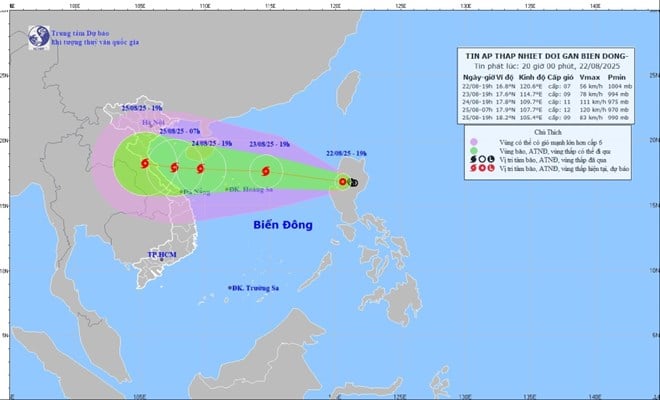

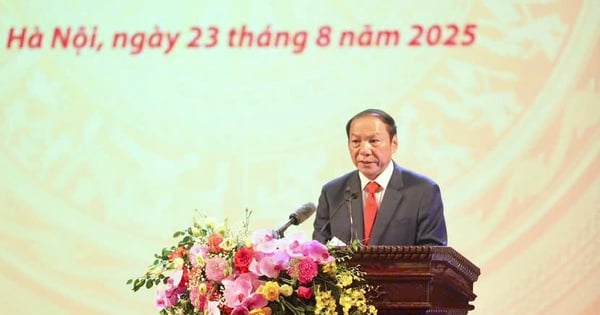



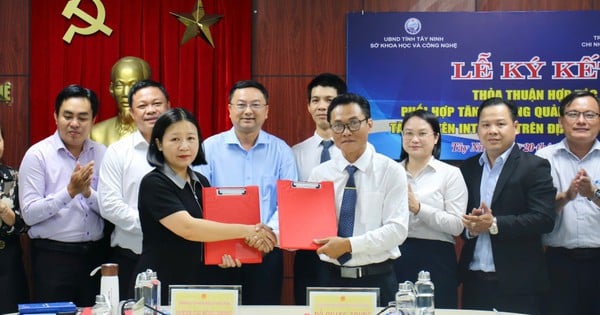


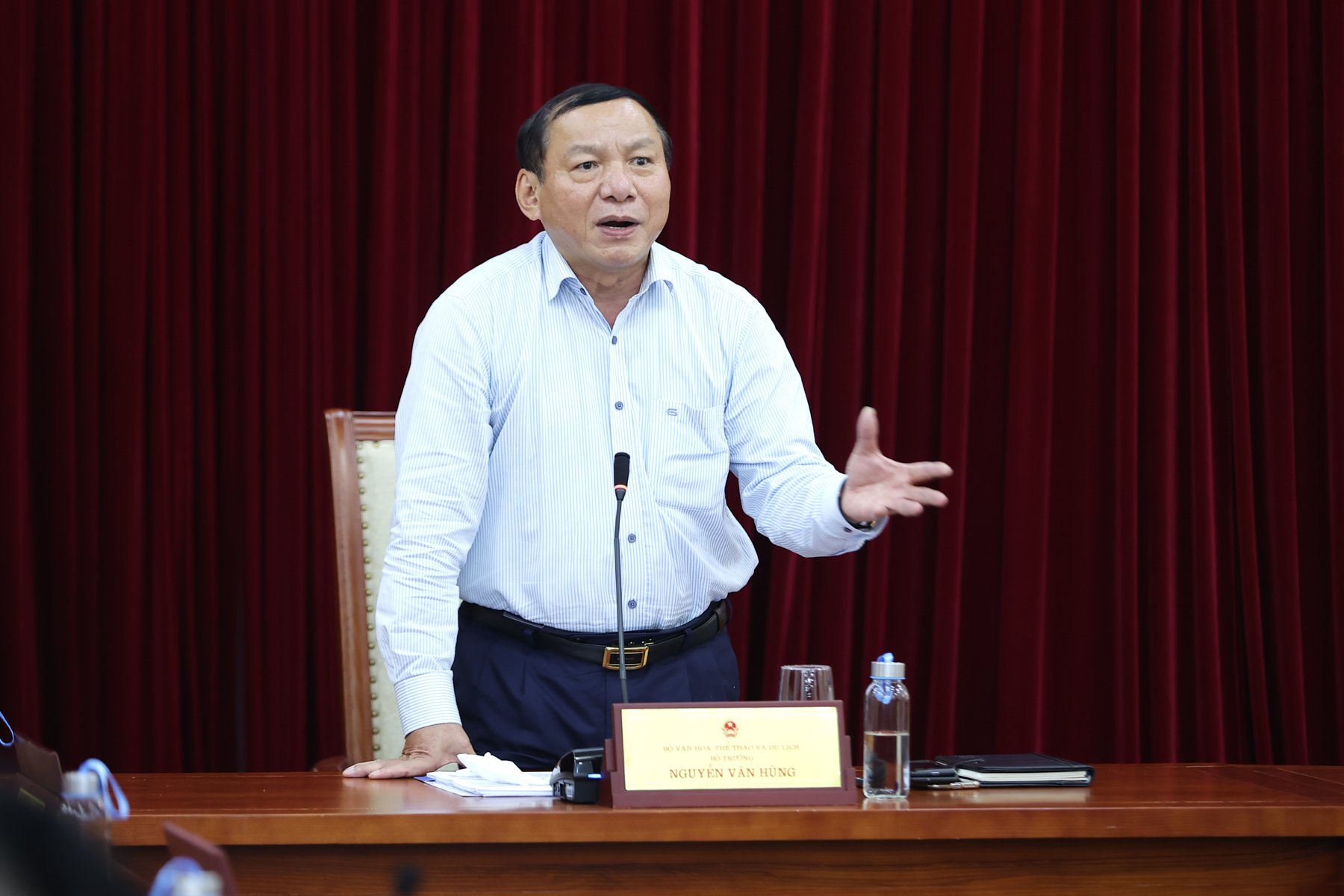
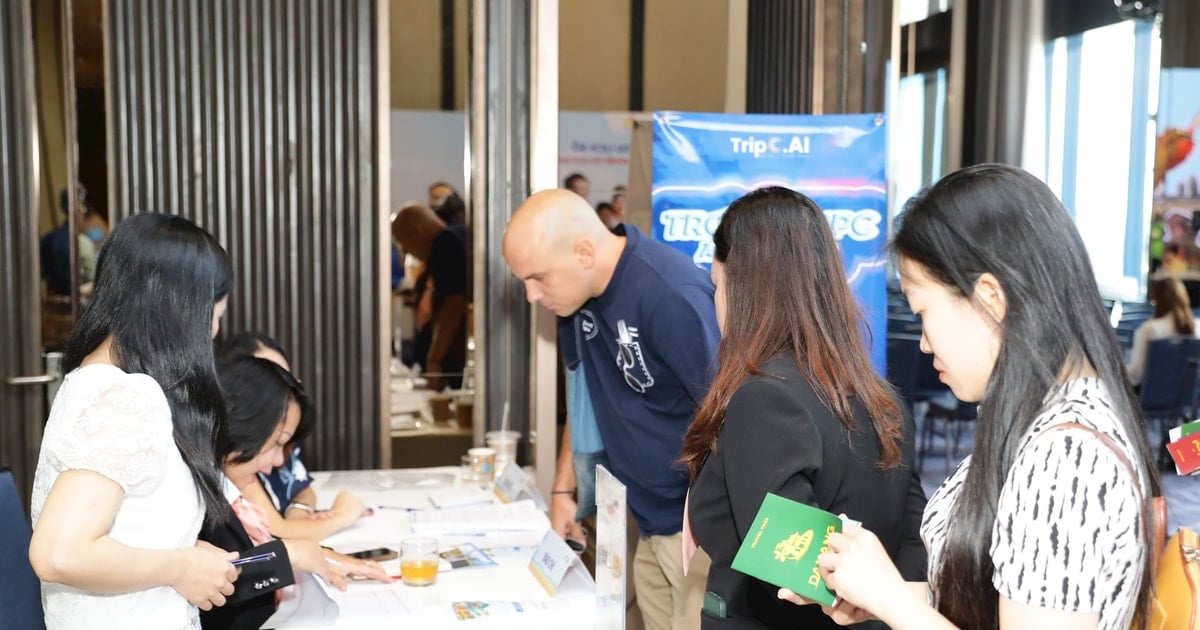

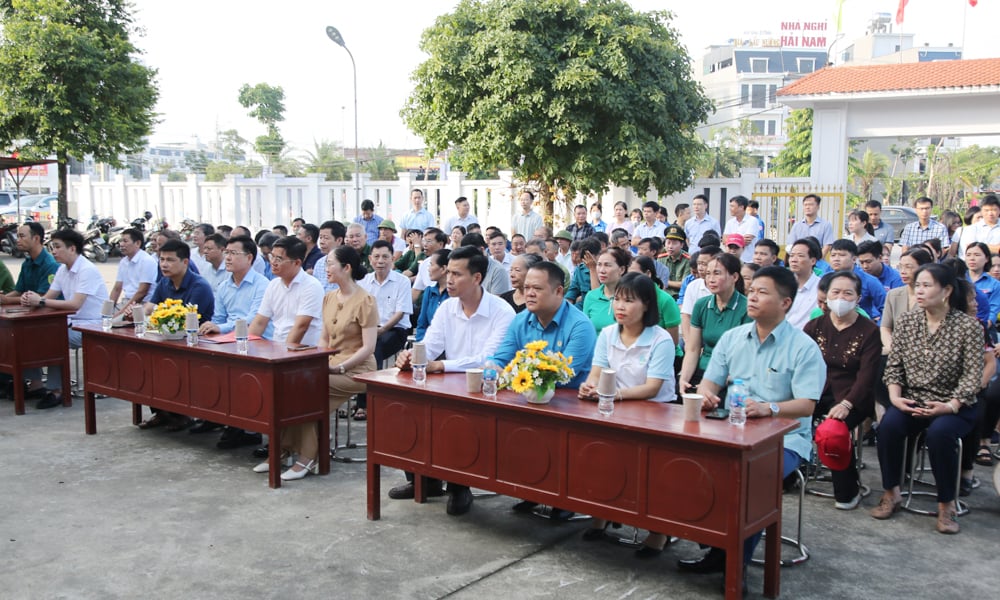



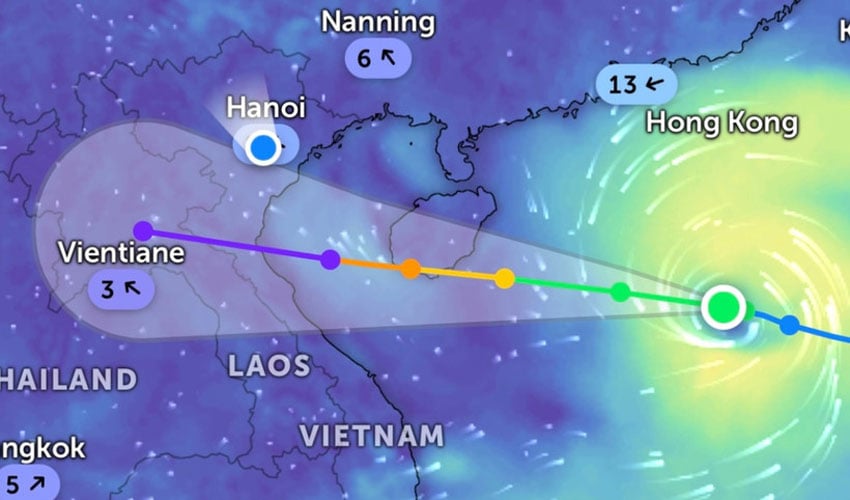

















Comment (0)